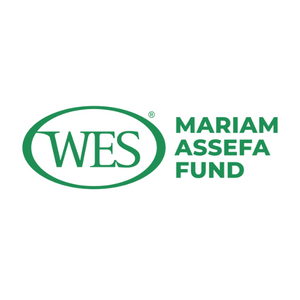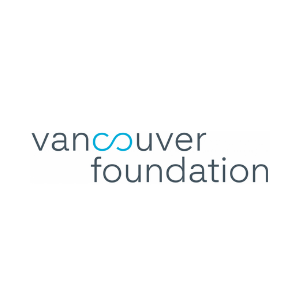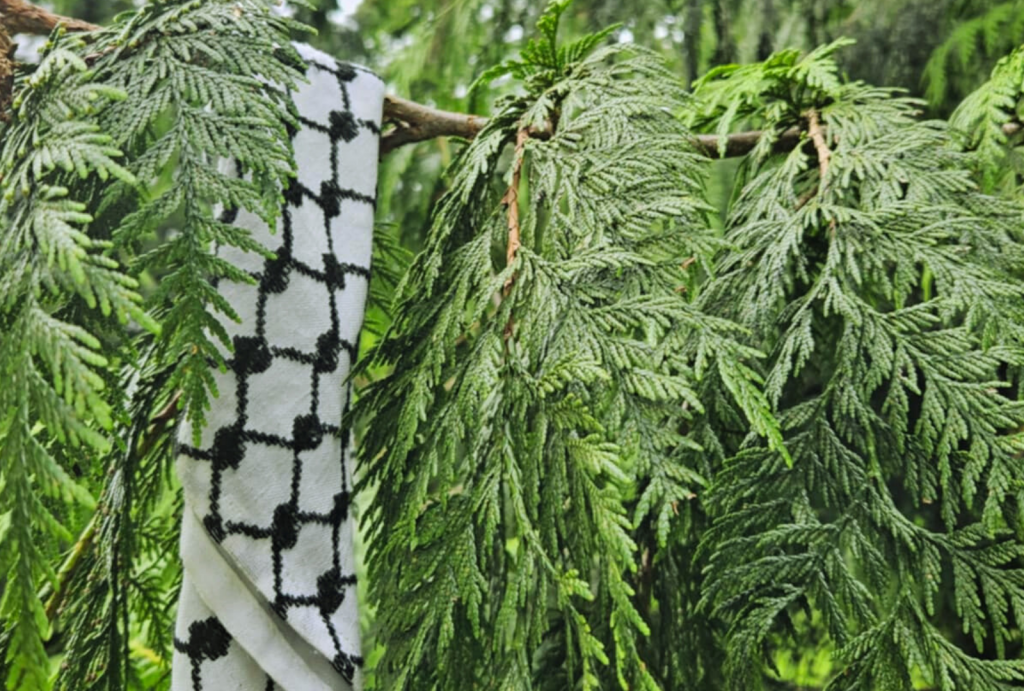
On Histories and Knowings: Indigenous-Palestinian Existences
There will be a place in time where Indigenous existences, in all of our complexities and imperfect humanities, are not subject to debate or exceptionalism.
RADIUS’ Refugee Livelihood Lab offers the Migrant Systems Change Leadership certificate program to people in British Columbia with first-hand lived experiences of being a racialized refugee, newcomer, or migrant.
The Refugee Livelihood Lab facilitation team and participants will work together to deepen our understanding of systemic issues affecting migrant and refugee communities.
By focusing on transforming the systems we are in, we will gain an understanding of how rules, norms, relationships, and ways of thinking can create long-term, meaningful change. We will explore concepts such as equity, power, racial justice, Indigenous rights, decolonization, solidarity, and collective liberation.
The program starts on Friday, September 12, 2025 until Saturday, January 17, 2026.
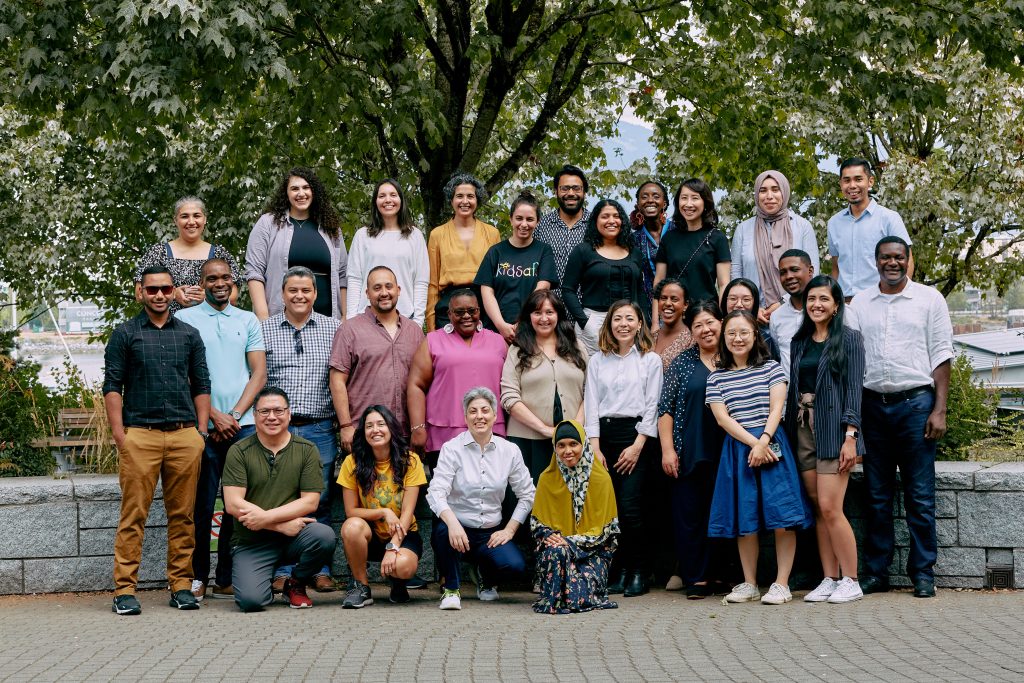
Applications are open until Friday, July 28, 2025.
You will need to create an account to use the online application form, which requires your name, address, and phone number. The application form includes a few questions that will help us get to know more about you, your story, and why you are interested in joining this program. We will not ask about your status or need any other formal documents from you.
If you are undocumented or have concerns/challenges applying for any reason, please email us at mscl@sfu.ca.
In the meantime, we invite all interested applicants to register for an information session.
For questions, email mscl@sfu.ca.
We welcome racialized refugees, newcomers and migrants of all backgrounds and experiences, regardless of status including (but not limited to): students, artists, activists, organizers, elders, disabled people, settlement workers, unemployed people, parents, and beyond.
We invite you to apply if you:
We will not ask about your status or need any other formal documents from you. If you are undocumented or have concerns/challenges applying for any reason, please email us at mscl@sfu.ca.
Attend an information session in July
The Refugee Livelihood Lab team is in solidarity with the elderly, newcomers, refugees, undocumented people, Indigenous people, Black people, people of all religious faiths, racialized people, English language learners, drug users, sex workers, the 2SLGBTQIA+ community, young people, people with no to low income, parents, caretakers, disabled people including people who live with mental and physical illnesses.
We encourage you to share the identities you carry with us, and we also understand that there will be other identities you may not feel open to share at this time, or ever.
We hope to create a space that welcomes and celebrates all identities, while also acknowledging we are all learning how to be in better relations with each other. We will make unintentional mistakes, or be uninformed about certain identities, and we will work together to address those gaps in our collective conditioning.
The program begins on Friday, September 12, 2025 until Saturday, January 17, 2026.
Participants are required to attend all in-person and online sessions. In-person sessions will take place in the Lower Mainland. Support for transportation may be available.
In-person:
Online:
Dates in order:
Participants can expect to spend approximately two to three hours bi-weekly in addition to attending the sessions to complete optional tasks.
We invite all interested applicants to join us at an information session online:
Sign up to attend an information session
It is not mandatory to attend an information session to apply or to be considered for the Migrant Systems Change Leadership program, however, interested applicants are encouraged to attend to find out more if this program is the right fit for you. If you are unable to attend an information session, but have other questions, please email mscl@sfu.ca.
With support from our funders, we are able to offer this program free of cost.
We recognize that inequitable structures create barriers that might prevent you from accessing this certificate program. We are committed to removing access barriers to the best of our ability.
Stipends and transportation subsidies are available to all. Access needs such as language interpreters, computers, Wi-Fi, dependent care support (childcare and elders), and more are available by request.
Note: If you have access to professional development funds from your workplace, we encourage you to let us know and use these funds as we are completely reliant on external fundraising to deliver this program and would like to further enhance participant experience. However, your access to funds will not determine if you are invited to be a part of this program.
If you have questions or concerns, or are unsure if this is the right program for you, contact the Refugee Livelihood Lab team at mscl@sfu.ca.
Can I still apply if I do not live in British Columbia?
As we require participants to attend all in-person and online sessions, we are currently not accepting applications outside of British Columbia.
Is this an academic program?
No, this is not a traditional academic program. It is a community-driven learning experience that is more informal but still provides a non-credit certificate from SFU upon completion. You do not need a study permit to take this certificate program.
Is this program graded or pass/fail?
No. As an SFU non-credit program, there are no grades assigned. To receive a certificate, there will be a pass or fail assessment from the facilitators.
Will you give us assignments or exams?
No. While we will ask you to complete some tasks outside of the sessions to help with our group discussions and activities, there will be no assignments or exams. You can expect to spend two to four hours per month completing tasks outside of sessions.
Will I get a job placement if I do this program?
You will meet a vast network of community members throughout this program who could potentially help accelerate your job search and connect you with a potential employer. Although many past participants gained employment indirectly, it is not the main purpose of the program, and we cannot guarantee or promise a job.
Some topics in the program can be triggering and create tension. What will you do to provide a safe space for everyone?
We will collaboratively establish community guidelines at the beginning of the program with the aim of creating an open and healthy space for sharing and challenging each other’s ideas. While we do not tolerate hateful, discriminatory, or disrespectful behaviour, we also understand that each person is on their own learning journey and we don’t expect everyone to be on the same page immediately.
We will have patience and extend grace and opportunities to learn and guide each other to deepen our understanding of each other’s humanity.
Our facilitation team is skilled with mediating difficult conversations and conflict, and implementing grounding techniques. We hope to simultaneously invite curiosity, openness and learning into the space, especially with the diversity of lived experiences racialized migrants carry.
There will be external support available that will be introduced to participants once the program starts.
Share our posts on Instagram, Facebook, or LinkedIn.
Print out a poster: black and white version (PDF)| full colour version (PDF)
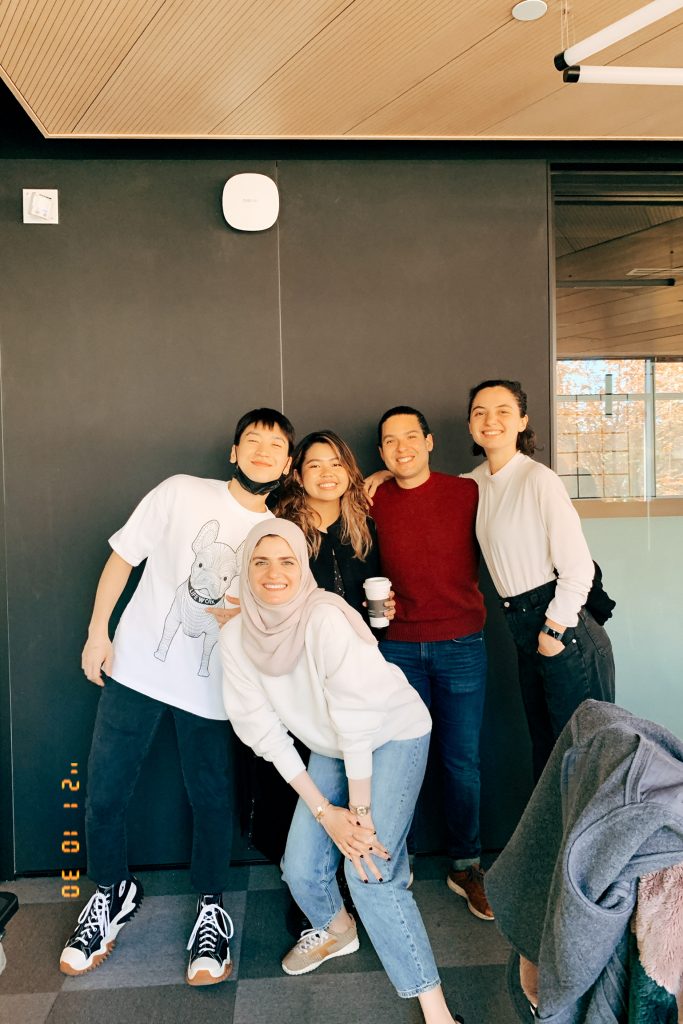
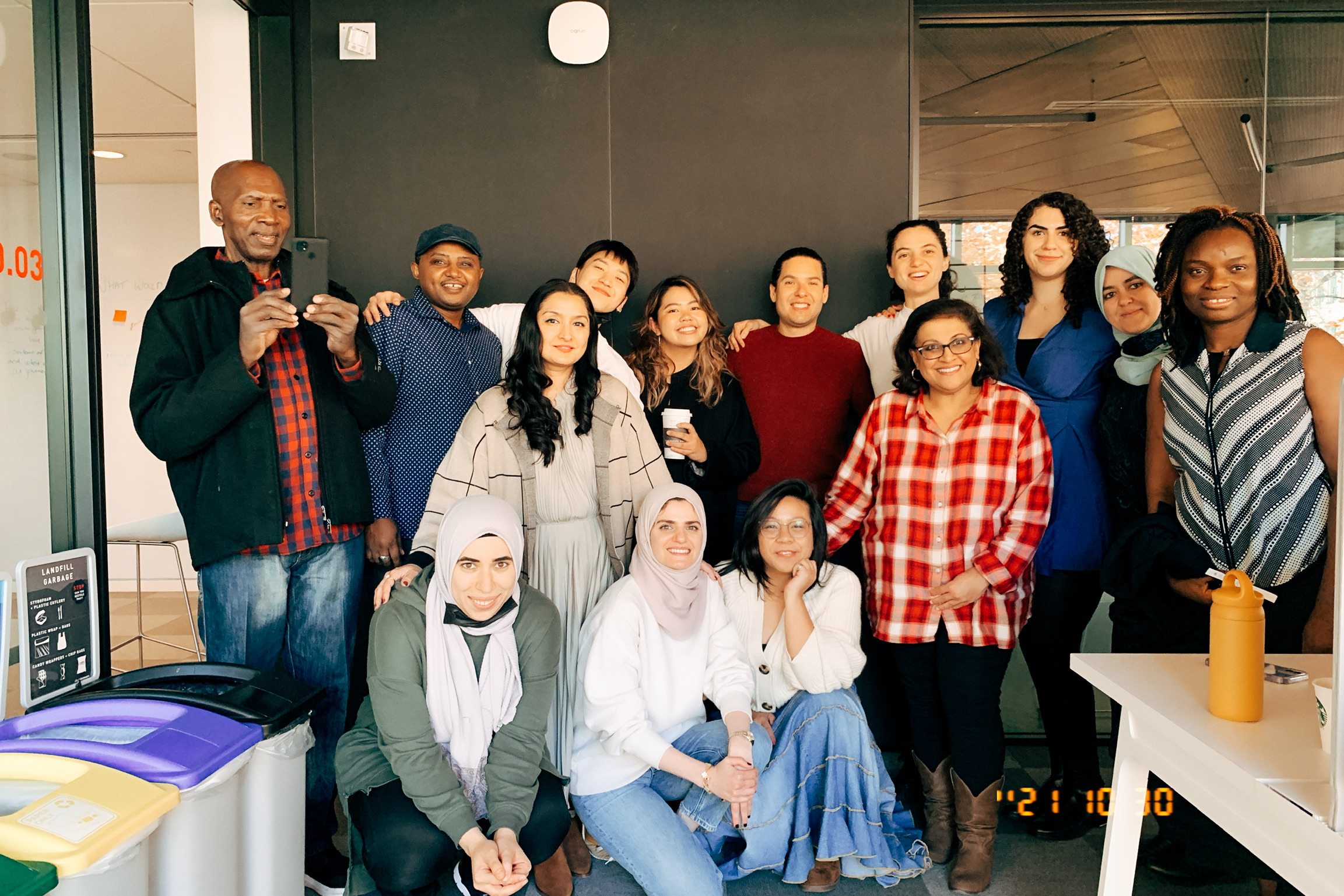
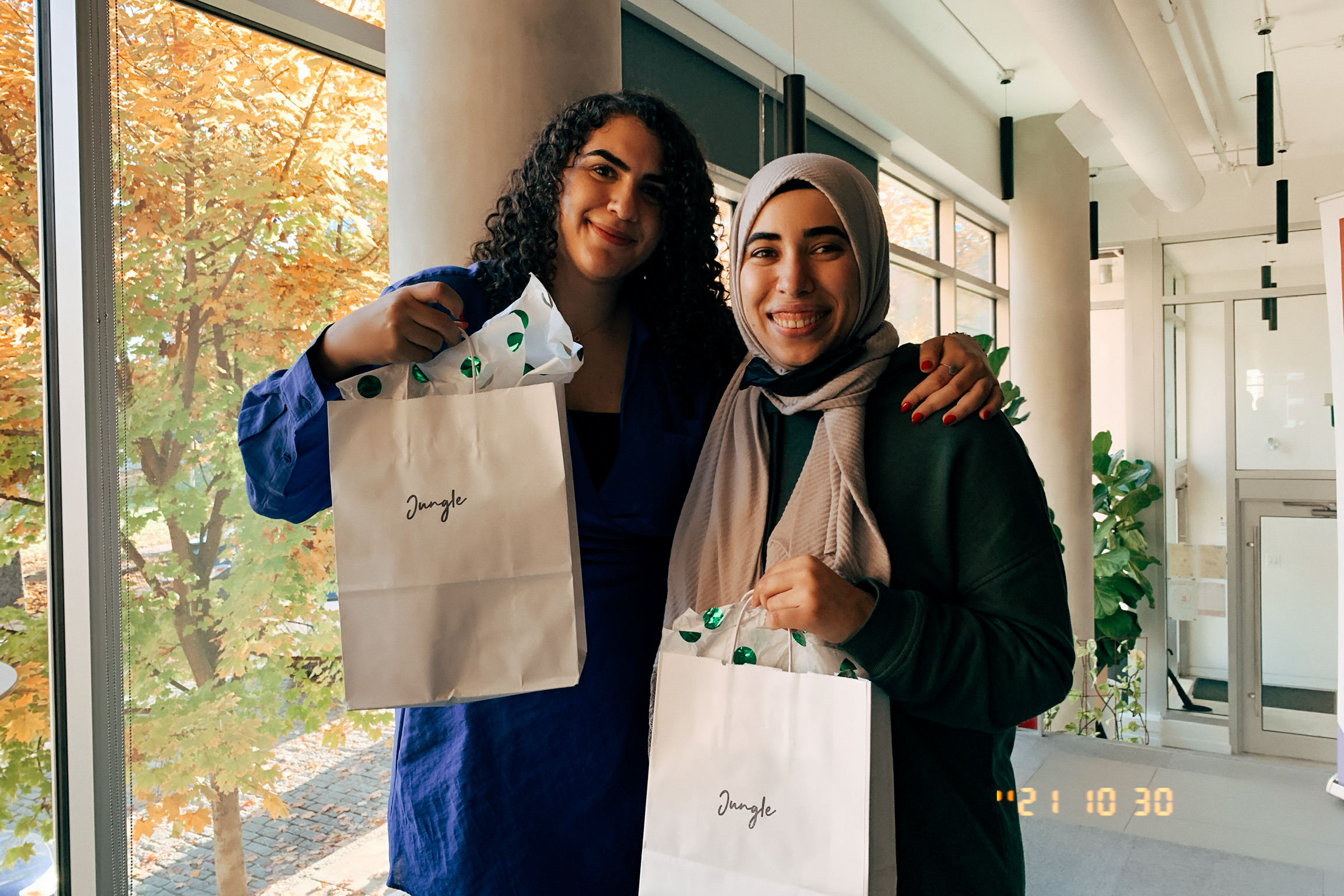
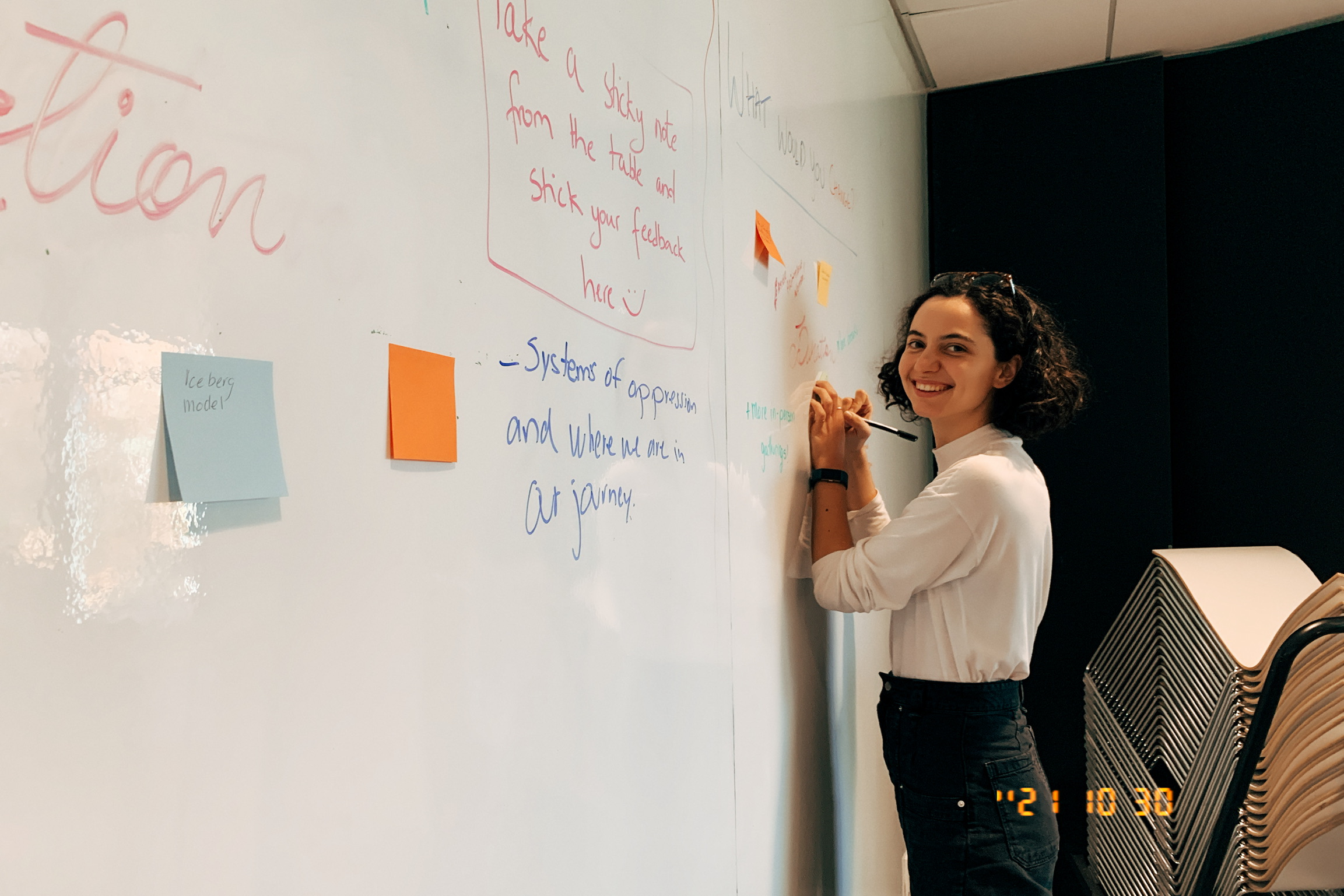
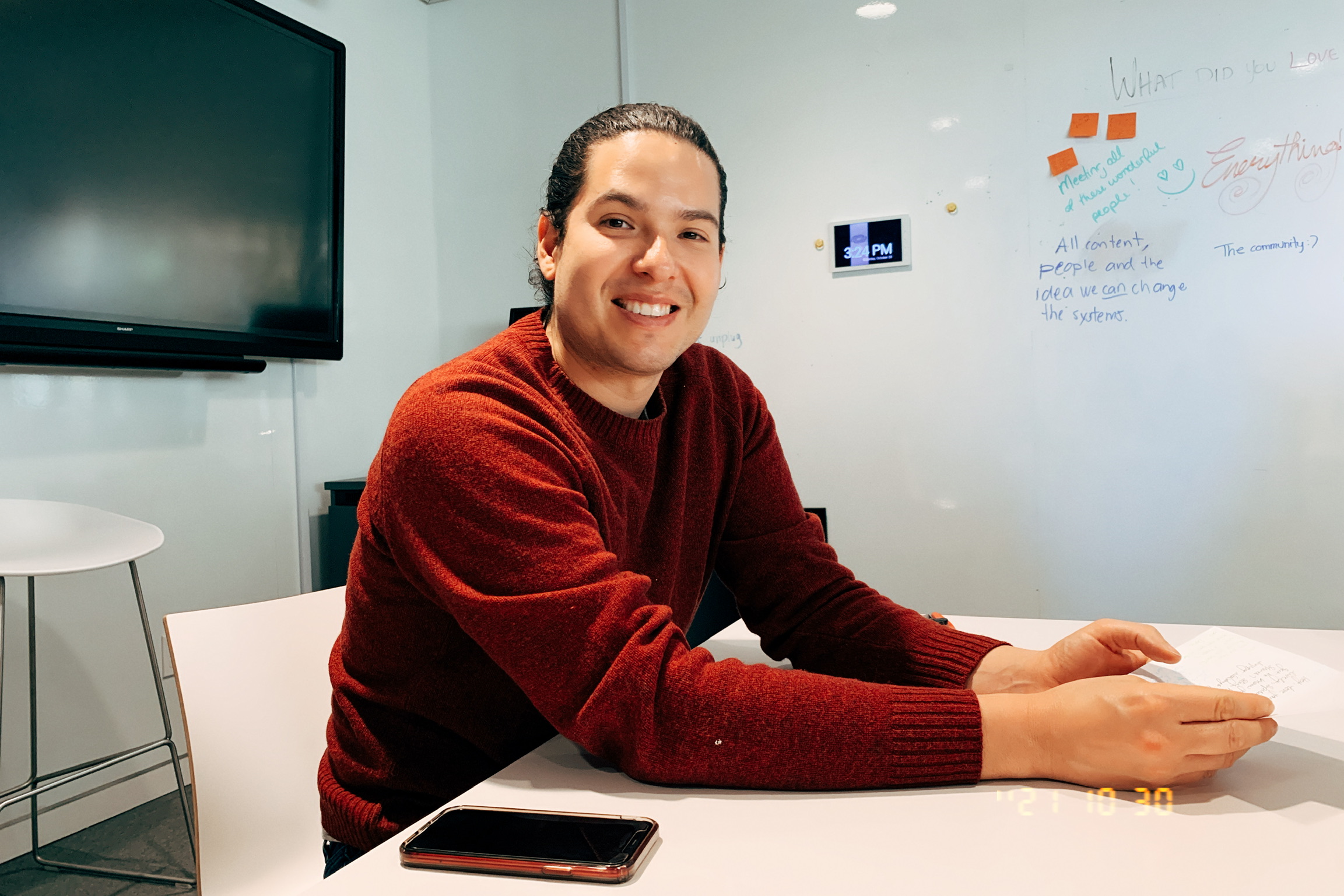
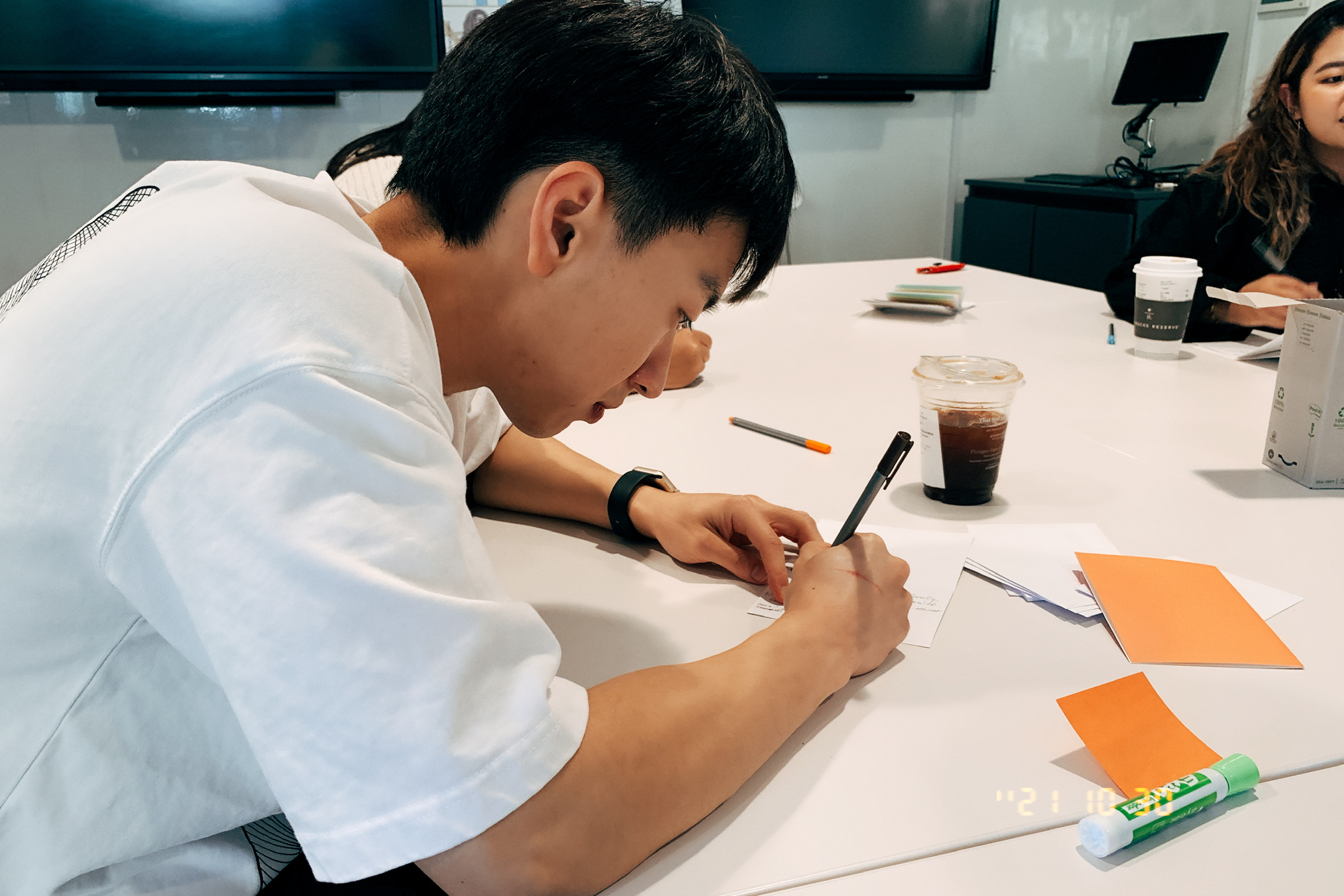
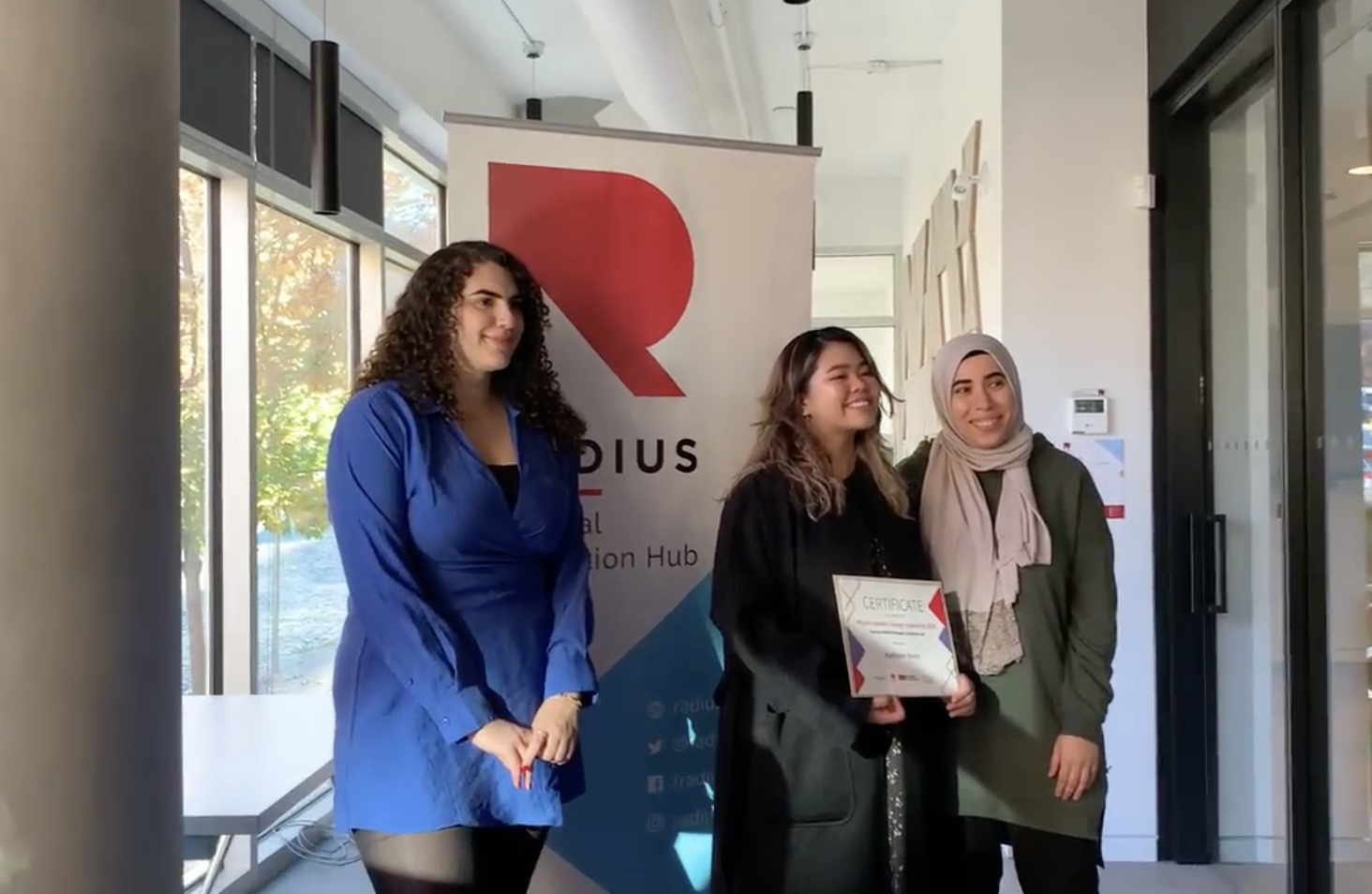
Photos by: Xiaoyi Zhu
About the Refugee Livelihood Lab
The Refugee Livelihood Lab is a social innovation lab housed within RADIUS at Simon Fraser University’s Beedie School of Business.

There will be a place in time where Indigenous existences, in all of our complexities and imperfect humanities, are not subject to debate or exceptionalism.
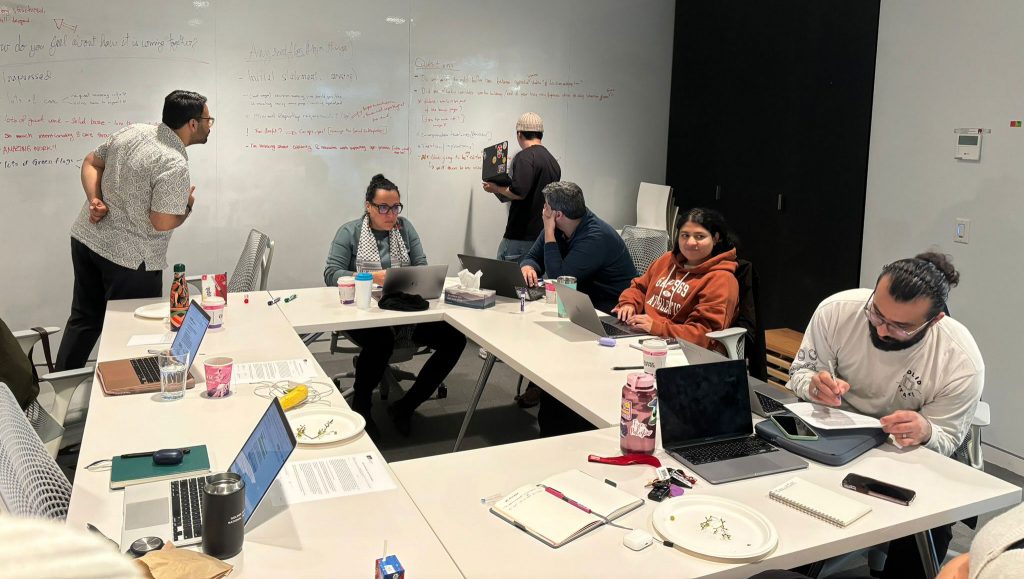
The application process for the Participatory Grantmaking Initiative is currently in full swing. Applications opened on December 10th, 2024 and will close on February 3rd, 2025 at 10 am PT.
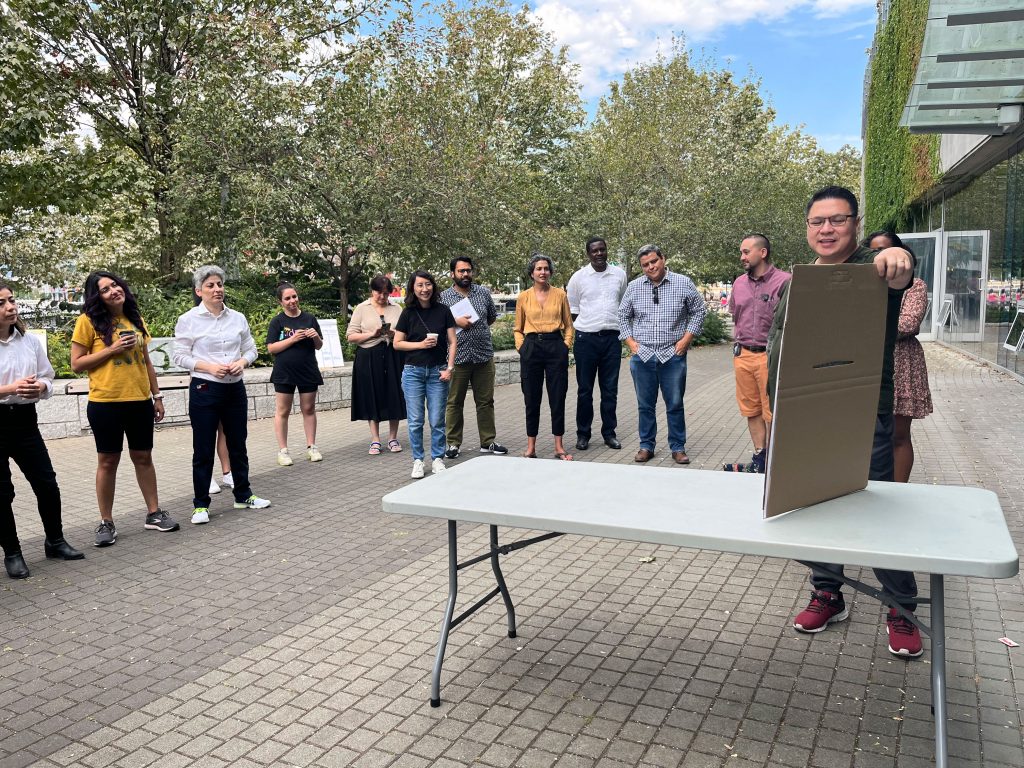
We are excited to announce the launch of the participatory grantmaking initiative to support racialized migrants. This initiative is a result of a partnership between the RADIUS Refugee Livelihood Lab
